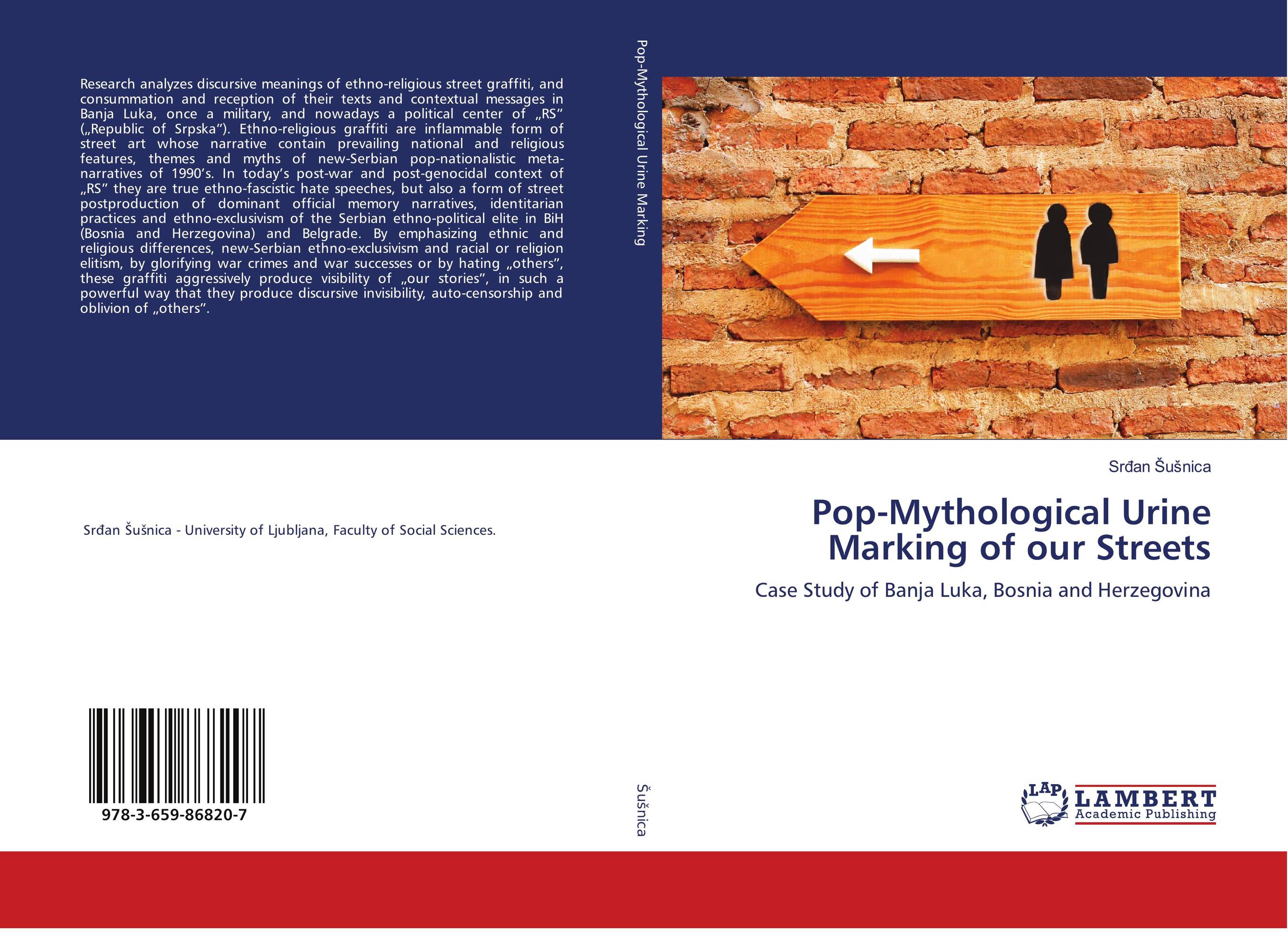| Поиск по каталогу |
|
(строгое соответствие)
|
- Профессиональная
- Научно-популярная
- Художественная
- Публицистика
- Детская
- Искусство
- Хобби, семья, дом
- Спорт
- Путеводители
- Блокноты, тетради, открытки
Pop-Mythological Urine Marking of our Streets. Case Study of Banja Luka, Bosnia and Herzegovina

В наличии
| Местонахождение: Алматы | Состояние экземпляра: новый |

Бумажная
версия
версия
Автор: Sr?an ?u?nica
ISBN: 9783659868207
Год издания: 2019
Формат книги: 60×90/16 (145×215 мм)
Количество страниц: 148
Издательство: LAP LAMBERT Academic Publishing
Цена: 36982 тг
Положить в корзину
| Способы доставки в город Алматы * комплектация (срок до отгрузки) не более 2 рабочих дней |
| Самовывоз из города Алматы (пункты самовывоза партнёра CDEK) |
| Курьерская доставка CDEK из города Москва |
| Доставка Почтой России из города Москва |
Аннотация: Research analyzes discursive meanings of ethno-religious street graffiti, and consummation and reception of their texts and contextual messages in Banja Luka, once a military, and nowadays a political center of „RS” („Republic of Srpska”). Ethno-religious graffiti are inflammable form of street art whose narrative contain prevailing national and religious features, themes and myths of new-Serbian pop-nationalistic meta-narratives of 1990’s. In today’s post-war and post-genocidal context of „RS” they are true ethno-fascistic hate speeches, but also a form of street postproduction of dominant official memory narratives, identitarian practices and ethno-exclusivism of the Serbian ethno-political elite in BiH (Bosnia and Herzegovina) and Belgrade. By emphasizing ethnic and religious differences, new-Serbian ethno-exclusivism and racial or religion elitism, by glorifying war crimes and war successes or by hating „others”, these graffiti aggressively produce visibility of „our stories”, in such a powerful way that they produce discursive invisibility, auto-censorship and oblivion of „others”.
Ключевые слова: street art, graffiti, pop-nationalism, hate speech, ethnic cleansing, ethno-fascism, street names, memory narratives, cultural memory, Banja Luka, Republic of Srpska, Bosnia and Herzegovina



